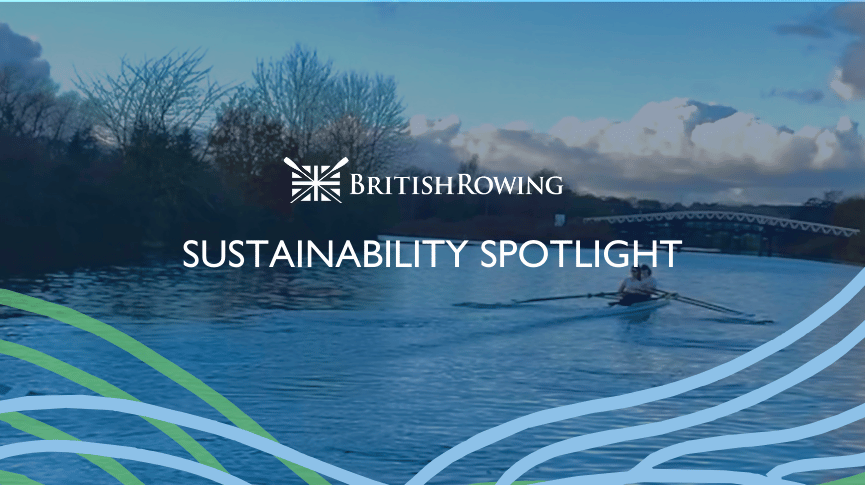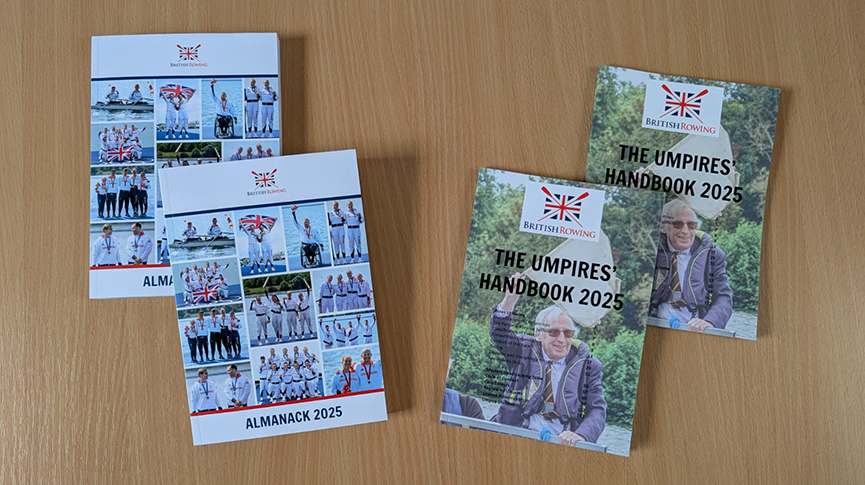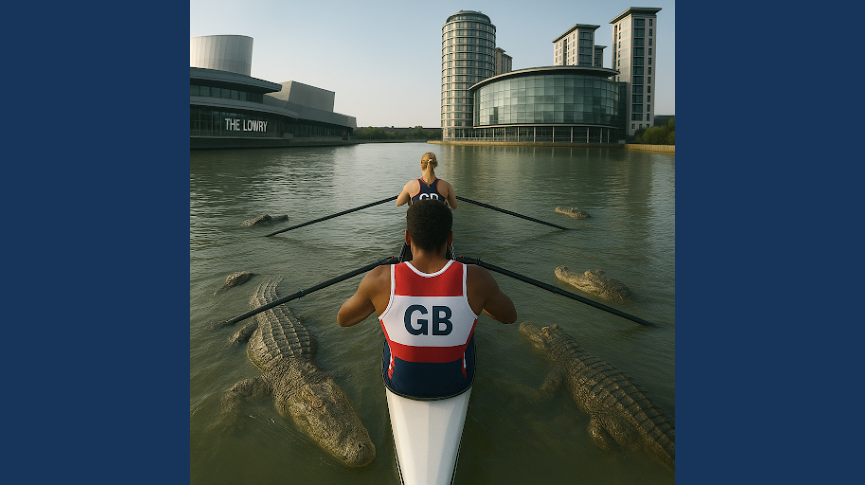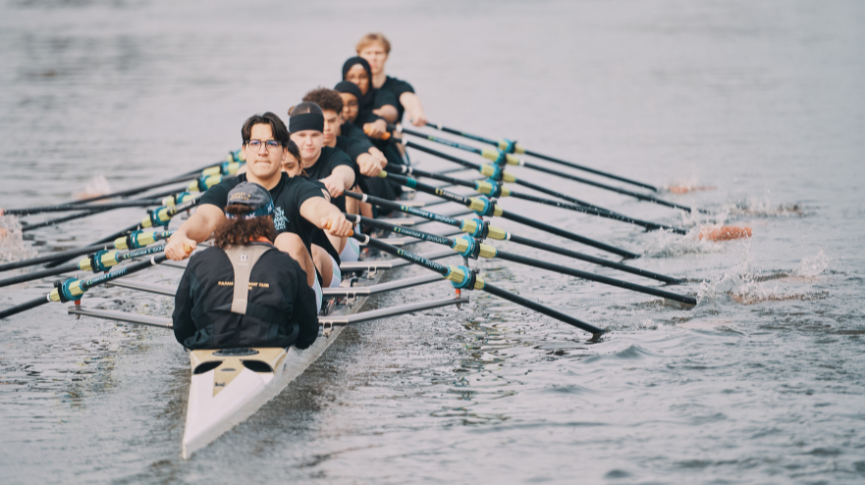Memories from the 1964 Tokyo Summer Olympics
Mike Rowbottom tells the story of Bill Barry’s silver medal winning coxless four of the 1964 Games, the last time Japan hosted a Summer Olympics
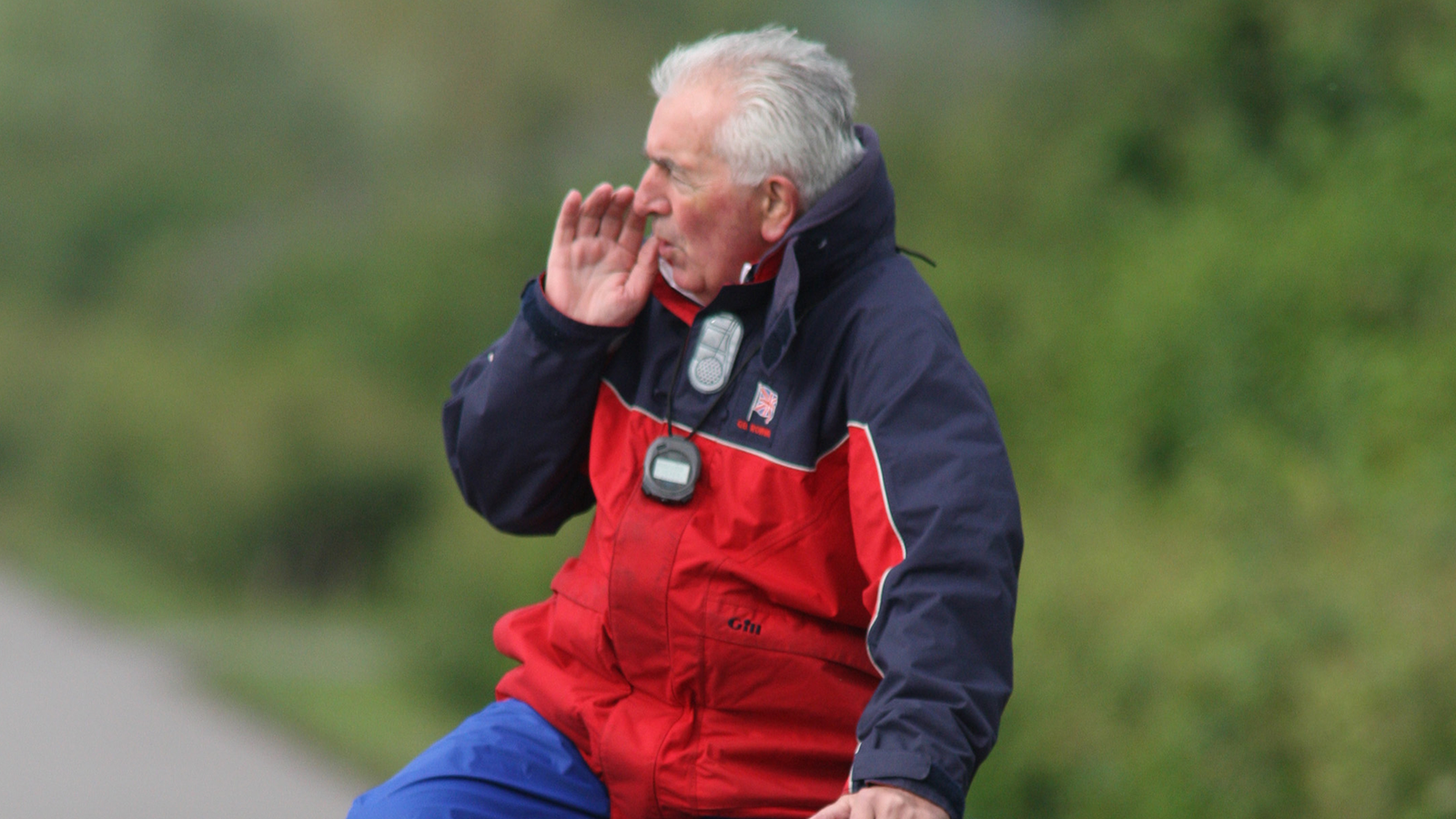
Bill Barry went into coaching later in his career, famously coaching Alan Campbell to Olympic bronze in 2012 (c) John Batty
So here’s the deal. You are rowing for Britain at the Olympics in a crucial heat against the defending champions and you notice that one of your crew’s gates is undone. What do you do next?
It was Bill Barry’s call at the 1964 Tokyo Games when, as the youngest member of the coxless four, he noticed early in the race that the man in front of him – Hugh Wardell-Yerburgh, as we’re naming names – had clearly been distracted by the importance of the occasion.
“The gate was sticking up like that,” says Barry, seeing it again in his mind’s eye all these on. “So the oar could have popped out at any moment. And my decision was, do I tell him, and he tries to shut it, or do I not tell him? And I thought, nah, I won’t bother to tell him. Until afterwards, when I’ll kick his backside.
“If I’d told him he might have turned round and messed things up, and we had a tough race on our hands against the United States. After all, they were the gold medallists from the 1960 Games and they thought they had the gold medal in the bag again. We had other ideas.”
Barry’s gamble paid off. The British crew won the heat without any calamity, earning an automatic place in the final. “So I er … yeah, criticised Hugh if you like, for not looking after his equipment,” says Barry with a chuckle. “I told him how he nearly lost us a race, made a great exaggeration of the whole thing, and watched him squirm. And the others watched him squirm as well. And then we moved on – the bantering was done.
“Hugh was the only person who had any kind of funny trait or characteristic in our crew. He would be sitting there if we were talking about racing or strategy, and he’d be doing this – shaking his legs. So that’s why we called him Wobbly; and of course it’s much easier to say Wobbly than Hugh Wardell-Yerburgh!
Barry was an established sculler ahead of the Games, taking a silver medal at the 1962 Empire and Commonwealth Games in Australia and winning the Wingfield Sculls, the championship of the Thames, four times in succession from 1963 to 1966. He reached the final of the Diamond Sculls at Henley twice. “I lost to the great Stuart MacKenzie, and I lost by two feet to Gottfried Kottmann, the Swiss guy who got an Olympic bronze in 1964. So I never won it, but I got close. Two feet.”
The plan was to compete in the single sculls at the 1964 Games. However, eighth place in that year’s European Championships was not quite enough to convince the selectors that he was a potential finalist, if not medallist. “The four had come 18th at the Europeans. So the selectors decided we would focus on the four and put the two top scullers – myself and Hugh Wardell-Yerburgh – in to strengthen it.
“Because it was Japan, I think the selectors thought the cost was going to be quite high and they focussed on boats they felt were going to get into the finals. And indeed the three boats that they did send all got into finals. Quite a lot of the competition were, let’s say, more professional than I was. So it was a difficult thing to think I could win anything. My record wasn’t, I suppose, good enough to get the medal.”
It became immediately clear, however, that the newly formed four were hell-bent on a medal. “We increased the gearing of the boat by having much longer oars than the previous four. We started circuit and weight training at lunchtimes as well as the evening training and weekend training, so we trained harder,” Barry says. “Circuit and weight training was pretty new in those days. There were no ergos… I remember the first session, I couldn’t comb my hair or put my shirt on afterwards because we hadn’t done that kind of muscular training before.”
Despite all the training, however, the four that turned up for that opening heat on the Toda Rowing Course were labouring under a disadvantage. They had never raced together. “There weren’t any races available,” Barry recalls. “There were no regattas. When we got to the Olympic lake we used to line up and pace ourselves with the American and German eights over 500m. So we knew we were pretty quick.
“But you have to race a few times to get that experience of how fast you can go, how you can counter other people. We didn’t know how fast we were. And I think if we had had a race, and known how fast we were, we would have won the Olympics. Because it’s all about ‘who are the opposition? Who does what, when? What’s our race strategy?’ We just went out and did it.”
And that almost proved enough. “The Danish led us in the final,” Barry recalls. “We were catching them up at the end but they won by a short head. And the most disappointing thing for me was that I didn’t hear the national anthem. “It didn’t really sink in at first that we’d done something special. I was thinking a bit later, you know, it was a sculler thing: ‘We didn’t win.’ And then you get over that. You think okay, it wasn’t too bad. We are Olympians, and we did get a medal, we had a fantastic time in an amazing country which we knew nothing about.”
Among Barry’s treasured possessions is a newspaper picture taken in the Athletes Village of all Britain’s medallists – including athletes Ann Packer, Robbie Brightwell and Lynn Davies – walking together in a line. “We were all in the Village so it was relatively easy,” Barry says. “It would be very difficult now.
“But if you have been in the Olympics you are always an Olympian – because, I think, of that special international feeling and that special spirit. It’s the top thing you can do and the pinnacle of any sporting life. “And I think it changes your attitude towards people and life. I’ve still got a lifelong friend from the Danish crew that beat us – their stroke, Bjorn Haslov.”
Among Barry’s fondest memories is the whirlwind of activity that took place after the rowing had finished. “The Tokyo ex-pats organised us totally,” he recalls with a twinkle. “We were offered lunch, tea, dinner, clubs, trips. We did a three-day trip to Kyoto, the old capital – we were the first Olympians to go there which caused a sensation.
“We went down to Kyoto on the bullet train, which at that time was entirely new. We were free of training, and we ended up in the bar where they had the speedometer, and every time this thing went over 200km an hour it was another round of drinks. Now, when the train was very new there was a lot of subsidence on the line so it would slow down and speed up. So by the time we got to Kyoto, after about three hours, I couldn’t say we were fit to race again. We were well on the way to enjoying ourselves.”


